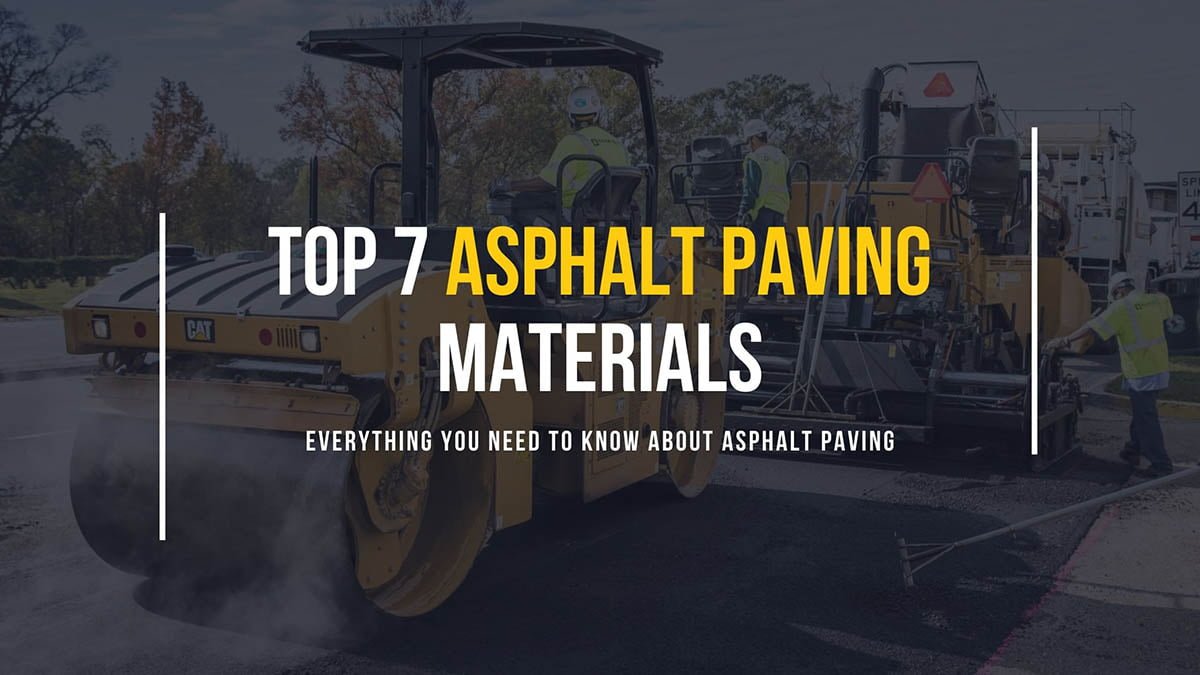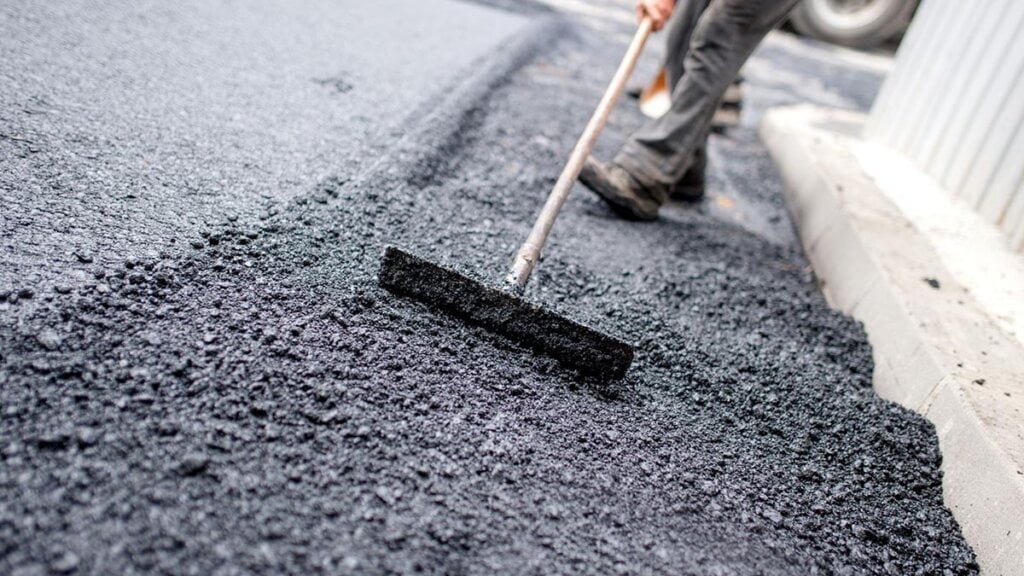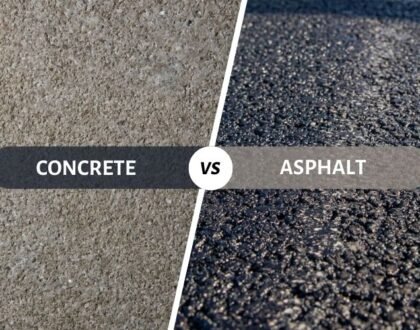Top 7 Asphalt Paving Materials

Asphalt is one of the most versatile pavement materials and the first choice of engineers worldwide. Perhaps, that is the reason behind its popularity and preference. Asphalt is the preferred choice for paving roads, driveways, golf tracks, tennis courts, parking lots, race tracks and even airports. It has plenty of uses in the construction space and can be used in various capacities and conditions.
Bitumen is another name for asphalt. It’s a sticky, black liquid with a high viscosity. The majority of its applications are in the construction of roads and pavements. It’s usually used as a glue or binder in the mix with aggregate particles to make asphalt concrete. While each construction project may need a different asphalt mix, such as to absorb noise, decrease splash, or even treat water runoff, the good news is that it can be mixed with a variety of combinations too, to suit varied needs.
There are many different kinds of asphalt paving materials that you can use for the upcoming project. You might be confused by the wide spectrum of choices available, so we want to give you an idea of what these classes entail so that you can make a more informed decision about which kind will work best for your needs:
Here are some expert tips to help you choose the right type of asphalt pavement:
Quiet Pavement
Quiet pavement is a new concept for building or restoring road surfaces to lessen the tire/pavement noise. The increase of vehicles not only increased air pollution but noise pollution too. Today technology is fixing environmental issues, and this mix of asphalt can significantly minimise the amount of noise generated by the pavement. Not only is this cost-effective but also more practical than building barriers to reduce pollution. Asphalt can minimize noise by up to half. Hence, it is a great alternative to conventional methods. It is best for residential communities to minimise the noise.
Hot Mix Asphalt

Hot Mix Asphalt is a mixture of stone, sand, or gravel held together with asphalt cement, which is a crude oil product. It is another preferred choice for driveways as construction as design can be adjusted quite easily. It nicely complements the home, institutions or industrial establishments. So no matter where you are building the driveway or the road, you can certainly consider it. The good thing is – that it provides strength, durability, is easy to maintain and repair, and can withstand extremely cold temperatures. Hot mix asphalt gives you an in-expensive and low maintenance solution.
Cold Mix Asphalt
Cold mix asphalt is a mixture of aggregates and cutback or bitumen emulsion that is typically used on rural or low-traffic roads. This one is suitable for areas that witness low temperatures. Using cold mix asphalt with technological advancements allows easy paving even under low temperatures where conventional construction can pose a challenge. It saves you fuel, effort, time and also reduces greenhouse gases. You can expect a better finish and longevity from cold mix asphalt pavement.
Thin Overlays

As the name indicates, in these asphalt pavements thin overlays of asphalt mixture are used to pave the path elegantly. It proves to be of good use for residential pavements. Thin overlay is excellent for regular minor treatments while the road is minimally distressed at a far lower cost than one major rehabilitation or reconstruction. You can grade the mixture according to the requirements.
Dense-Graded Mixes
Asphalt and other mixtures are formulated and graded nicely to build beautiful multi-purpose driveways, roads, tracks and pavements. These well-graded HMA mixtures are formulated for general use. A dense-graded mix is highly effective because it is relatively impermeable and has a nominal maximum aggregate size. There are further classifications such as fine-graded or coarse-graded.
Perpetual Pavement

Perpetual Pavements are a product of a multi-layer paving process carefully designed to extend the use and life of the roadway. It is often sturdy yet flexible since its multi-layer technology avoids cracks and damage in the pavement’s bottom layer; after that, a permanent middle layer is formed, and a driving surface is added, which lasts for many years if well maintained. Even after years of use, only the top layer needs to be replaced and reconstructed. Since asphalt is recyclable, it further reduces costs significantly and is also a sustainable solution for construction purposes.
Porous Asphalt
As the name indicated, Porous Asphalt lets water pass through the surface and travel directly into a recharge bed then further into the soil below the pavement. This paving material has been around since the 1970s. Porous asphalt pavement is considered best for parking lots and gardens as it improves water management. Porous Asphalt is also durable, long-lasting, and cost-effective. You can expect it to easily last for 20 years or more.

Final Words
As you can see, there are several varieties of asphalt and each is most ideally suited for use in different situations. Understanding the differences between the different types of asphalt can help ensure you’re choosing the right one for your unique paving situation. With advancing technology and evolving construction methods, asphalt pavement continues to get better and stronger. It is the first choice of engineers all around the world.
You just have to choose the right type of asphalt to provide you with pleasing results, and we help you get exactly that. With over 15 years of experience in this space, Tarworks Construction is the leading partner for all your construction and repair needs. Right from highways to driveways, we are here to help you with all of your asphalt paving needs. Speak to one of our experts today, and we would love to help you with our exceptional customer service and knowledge!
Recommended Posts

5 Reasons To Consider Asphalt Paving For Your Driveway
August 26, 2022

Concrete V/s Asphalt Driveways: Which one is better?
March 31, 2022

All you need to know about Tar Surfacing in Johannesburg
January 31, 2022
